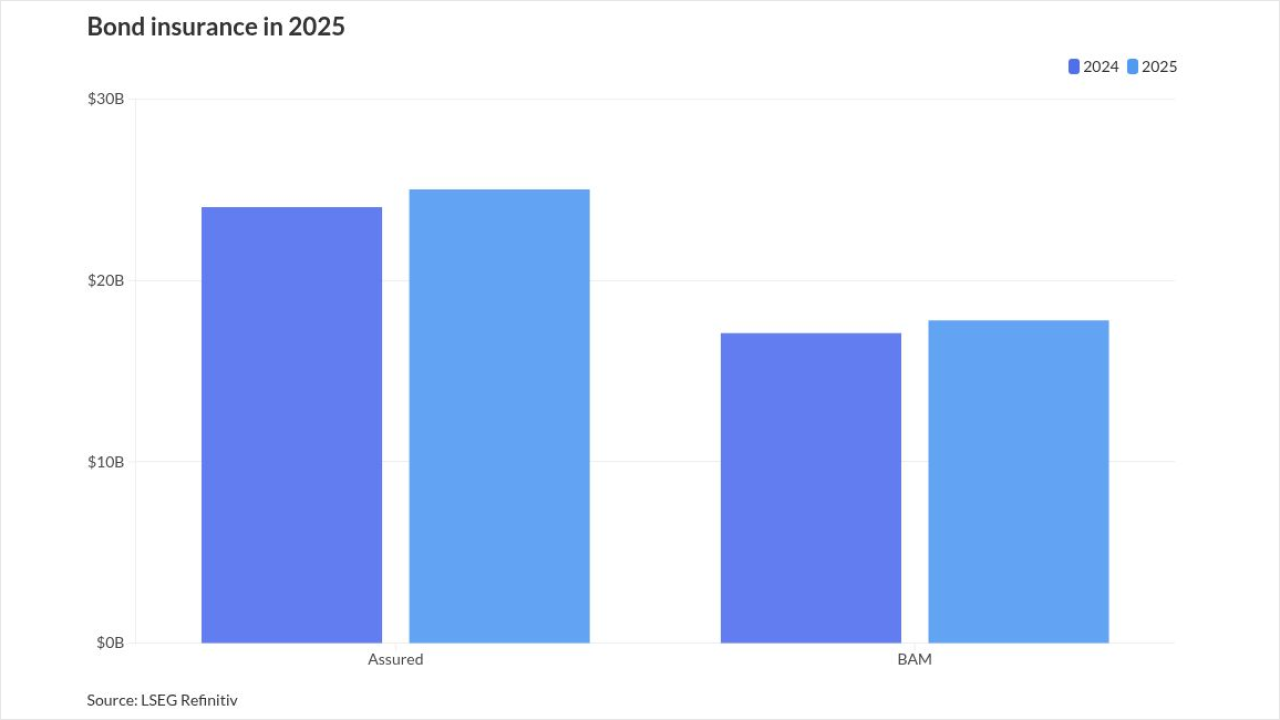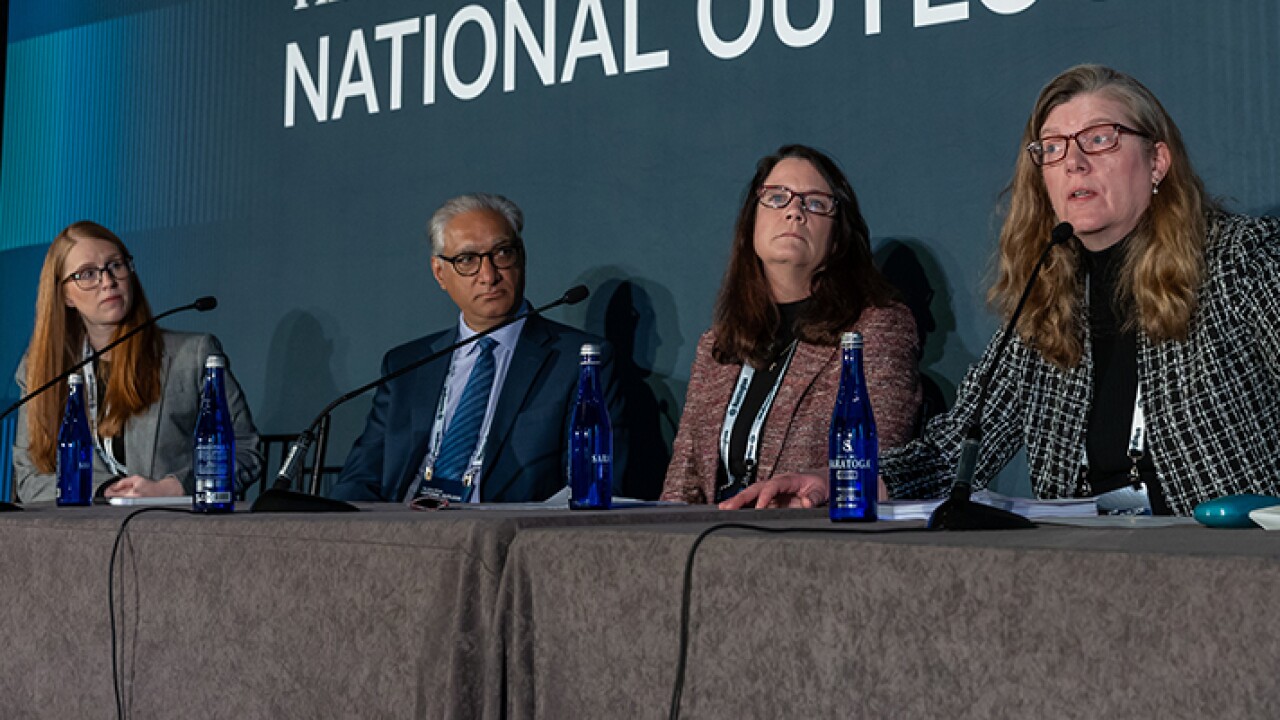Bloomington, Minnesota, plans to make a splash in the tax-exempt bond market next year by arranging a $300 million deal to fund a water park.
The aquatic amusement venue would be part of a Mall of America expansion for which city officials are working to finalize redevelopment agreements.

The already-enormous mall is owned by Triple Five, which recently opened parts of the massive
In Minnesota, the water park bonds would be sold through an out-of-state conduit on behalf of a not-for-profit chosen by the city to own the facility at the massive mall that opened in 1992 outside the Twin Cities. Officials are aiming for a March closing.
The water park has been bandied about for more than a decade, but in the last year the project and a financing plan have advanced.
The deal is designed to meet the Mall of America owners’ goal of obtaining lower cost tax-exempt financing and leaders believe it will insulate its taxpayers and budget from risks if the project falters.
The city also believes it’s a fair use of tax-exempt financing because the city benefits from mall-related taxes so it’s interested in keeping the facility attractive.
“It brings more hotel guests and it adds to the diversity of offerings at the Mall of America. We are continuing to watch bricks and mortar retail and diversification” is key to thriving, said Schane Rudlang, administrator at the Bloomington Port Authority, the city’s economic development arm. “There are no financial risks to the city and it’s a cash positive.”
The city expects the project will bolster general revenues from a citywide admissions tax by $1 million annually.
The city council is expected to consider various zoning issues at its meeting Monday but consideration of the various redevelopment documents by the council and authority that had been expected as soon as Tuesday have been delayed, Rudlang said. Consideration now may occur as soon as late January with a closing on the financing targeted for March.
After a competitive selection process, the city chose the national, not-for-profit organization Provident Resources Group to serve as the owner of the project and borrower of the tax-exempt bonds. “The city was looking to lessen its burden and get the project done,” Rudlang said.
Provident’s choice to serve as the national conduit bond issuer was the Arizona Industrial Development Authority.
Proceeds will finance a 325,000-square-foot indoor water park billed as one of the largest in North America.
Barclays will be bookrunning co-senior manager, Citi is the co-senior and Piper Jaffray is a co-manager. Baker Tilly Virchow Krause LLP advises the city and Kennedy & Graven is the bond counsel.
Mall of America will lease the land to the city, which in turn will lease it to Provident. After the bonds are paid off in 30 years, the city will take ownership.
Officials believe project revenues will repay the bonds, but if they fall short the city has agreed to a trigger mechanism that would impose new sales-related taxes on food and beverages, admissions and recreations tax at venues such as movie theaters, lodging and a general sales tax. The taxes would be imposed at the mall and the mall-owned expansion area.
If the project generates a profit, that surplus would go to pay down the debt early.
“We think it’s the most appropriate tool we have to backstop the debt. They are not citywide taxes. They are taxes that are focused on the general vicinity of the project,” Rudlang said. “They will help secure the debt and provide debt service coverage and will lower the interest rate.”
While the use of tax-exempt financing will hold down borrowing costs, its speculative nature will “require a price tag that will reflect that risk,” said Richard Ciccarone, president of Merritt Research Services.

While the city and mall owners may have feasibility studies that support their numbers, the $300 million price tag is sizable without an appropriation, moral or general tax pledge behind the bonds, and a lot can happen over the 30-year term on the retail front, Ciccarone said.
“The problem is there are moving pieces and over 30 years there are questions relating to the durability of malls. There’s no long term certainty about shopping mall traffic,” Ciccarone said. “Now, Mall of America is a proven traffic generator so if anyone is going to make it, it’s going to be them.”
The city is also contributing $58 million toward the project’s infrastructure from existing tax revenues derived from the development and tax-increment financing funds on hand for parking that are also limited in use to the area.
The city anticipates a $1 million annual benefit from the expansion from growth in revenue now generated by a current citywide admissions tax that is separate from the admissions tax that would be triggered at the mall if project revenues fall short of debt service needs.
The city is sensitive to comparisons to Vadnais Heights, Minnesota’s failed investment in a $27 million bond-financed hockey arena and to concerns that any setbacks could fall on taxpayers. The authority said in public documents that it reviewed the deal’s structure and sought to devise a structure that would insulate the city.
Vadnais Heights backed the lease deal with a pledge of funds for the bonds sold that through its economic development authority on behalf of a not-for-profit it created. The city eventually reneged on the support, leading to a bond default and sale of the facility.
Ciccarone believes the case can be made for the use of tax-exempt financing for the project because “in this case it’s related to an important part of the economic vitality and tax base for that area so I’d say there is a basis of it.”
The mall represents about 10% of the city’s tax base. It's a major regional attraction with more than 500 stores, an indoor amusement park and an aquarium among its lures.
About 30-40% of the city’s hotel room nights are attributed to mall-area hotels and overall hotel revenues make up about 7.5% of the city’s property tax base. The city said its $58.4 million general fund levy in 2018 would have been $9 million higher without existing lodging and admissions taxes that go to the general fund.





